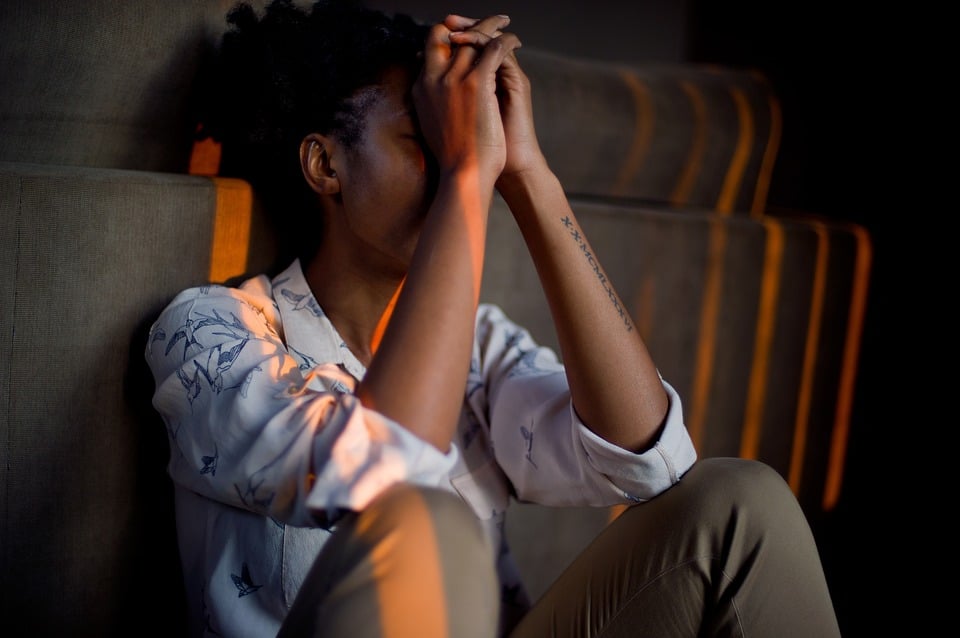Worry
Worry isn’t something I spend time on, so I had to think a bit when it was requested as a topic for my monthly meditation workshop. Not having a significant personal frame of reference on worry, I started with J. Ruth Gendler’s Book of Qualities. Here is her characterization of worry:
“Worry has written the definitive work on nervous habits. She etches lines on people’s foreheads when they are not paying attention. She makes lists of everything that could go wrong while she is waiting for the train. She is sure she left the stove on, and the house is going to explode in her absence. When she makes love, her mind is on the failure rates and health hazards of various methods of birth control. The drug companies want Worry to test their new tranquilizers but they don’t understand what she knows too well: there is no drug that can ease her pan. She is terrified of the unknown.”
There are a couple of things I take away from this. Mainly that worry is all about terror, pain, and a lack of control.
For me, it helps to identify worry for what it is: fear parading in a party dress to appear harmless. Put simply: Worry is the fear of outcomes beyond your control.
Sometimes you worry about someone else because they are making what you consider poor choices. Sometimes you worry about people you don’t even know because someone you care about is worried about them and you just kind of jump on board. Sometimes you worry about a project – something you put your time, energy and creativity into – and fear that others won’t approve or appreciate what you’ve done. There is worry about health (yours and others) and, of course, worry about jobs, careers, and money.
Whatever your worries, in addition to lack of control, they all have one element in common: They focus your attention in the future.
Your body can only exist in the present. When you worry, you project yourself into the future – triggering fear in your physical body. It’s a double whammy. You’re worried about potential negative outcomes (living those various possibilities in advance) and triggering fear in your physical body about being abandoned by you, the spirit. Ouch!
So, why do people worry? Or, perhaps less palatable, what do they gain from worrying?
There are several potential benefits to worry. Here are a few possibilities:
- First and foremost, it gives the worrier the illusion that they are doing something – taking some kind of action – in a situation where they ultimately have no control.
- It keeps them focused on something outside of themselves. Worry is a great distraction.
- It maintains the illusion of an emotional connection to someone who may have severed the connection, or at least created a distance or increased separation.
- It pulls them out of present time – out of a position of making choices and taking action – allowing them to abdicate responsibility for their own lives. This can be for a brief time, like a short break, or it can go on for YEARS.
- It’s a safe harbor against failure. If they’ve worried about a situation, when the forecasted bad outcome happens, they can feel sad or appalled and say, “Yes, I was so worried about that” as a way to absolve themselves of any connection or responsibility.
So, when you start to worry about something, the very first thing to do is pull yourself out of the future long enough to ask yourself if there is anything you can do to intervene through a direct interaction. If not, is there any energetic assistance you can provide? Would the person or situation benefit from grounding? Can you send an energetic healing, or connect those involved with the Supreme Being?
Basically, ask yourself if there is anything you can do – physically or spiritually – to change the situation. If there is, ask yourself (honestly) if you are willing to take that action. If there isn’t, or if you are unwilling to take action, let the situation go.
On the surface, letting go may seem callous, but it really isn’t. Remember, this is something where you’ve acknowledged that you have no control. It is not a reflection on your level of love or compassion, it is an acknowledgement of reality. It is giving the other person the freedom to learn their lessons through their choices. Not the way you would have done it – but hey, not your choices; NOT YOUR LIFE.
To paraphrase Yoda: Act, or Do Not Act; there is no Worry.



